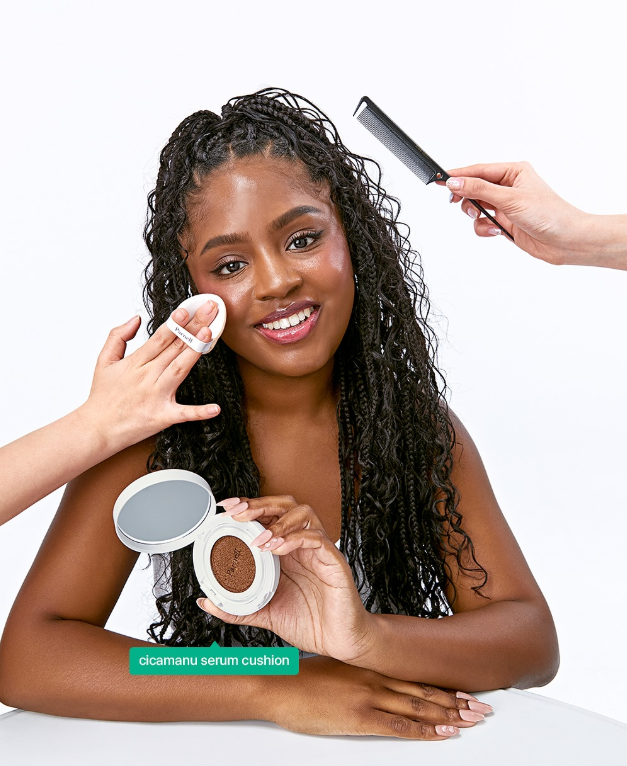
Vitamin C and Your Skin
Author: MMM Team
16 Apr 2020
Somewhere along the line of you shopping for cosmetics and skincare, you would have seen Vitamin C promoted as a popular ingredient. So what is it?
When our skin is exposed to oxygen and ultraviolet radiation in the air, it produces molecules called free radicals. These free radicals attack our skin cells causing skin ageing. Another scientific term for free radicals is “Reactive Oxygen Species (ROS)”. In addition to sunlight and oxygen, smoking and pollution can also generate ROS.
Vitamin C or “L–Ascorbic acid” helps to protect the skin by deactivating and destroying these free radicals before they cause damage to the skin. They belong to a group of compounds known as antioxidants. Other antioxidants are Vitamin E, Vitamin B3 (also known as niacinamide), selenium and Ferulic acid. Vitamin C, however, is the most potent and studied of the antioxidants, especially when combined with Vitamin E (also known as Tocopherol).
Vitamin C's free radical fighting power prevents the skin’s cells from being attacked and therefore can prevent the skin from aging. It can also help protect the skin from precancerous changes caused by UV exposure.
In addition to protecting the skin from free radical damage, Vitamin C can help the skin to heal and repair by increasing the production of collagen in the skin - leading it to often be used to help treat burn injuries.
Vitamin C also has a property that prevents hyper pigmentation in the skin. It helps to prevent discolorations such as sunspots, hormonal pigment and helps to even out the skin tone. This means it can make skin look brighter and reduce the need for wearing full coverage foundation and makeup!
Are all Vitamin C serums equal?
/f/98125/1160x548/a7083c473a/vitamin_c.jpeg)
Vitamin C is a very unstable molecule - this means it can easily break down when exposed to light and air and become inactive. If you've ever wondered why so many Vitamin C serums are sold in dark bottles, this is why. Vitamin C is also known as a hydrophilic molecule, which in scientific terms means “water-loving”. As our skin membrane is made up of “fatty acids”, it becomes a barrier for the Vitamin C to penetrate. An analogy to this is like trying to push a water molecule through an oily membrane - virtually impossible. A lot of research has been done on finding a “vehicle” that can successfully carry the Vitamin C molecule through the cell membranes.
However, it is not just the vehicle that the Vitamin C comes in that is important. There are other factors that can affect the efficiency of the product. These include the molecular form, concentration and pH (acidity) of the Vitamin C. Combining Vitamin C with other antioxidants such as Vitamin E has shown to increase the effectiveness.
Because Vitamin C is an unstable molecule, more stable forms such as ascorbyl-6-palmitate, magnesium ascorbyl phosphate and dehydroascorbic acid have been used in some skincare solutions. However, a study published by the American Society for Dermatologic Surgery, “Topical L-Ascorbic Acid: Percutaneous Absorption Studies” showed that these forms of Vitamin C were not absorbed by the skin. The only form of Vitamin C which was able to be absorbed into the skin was L-Ascorbic Acid.
The concentration of Vitamin C is also important. The most effective concentration was shown to be 15-20%. For unknown reasons, concentration levels higher than 20% were shown to result in decreased absorption into the skin.
The study also revealed the critical importance of the formulation of pH of L-ascorbic acid. Maximal absorption was seen at pH levels of 3.5 and lower. This means the more acidic the formulation, the better the absorption of Vitamin C into the skin is. However, that makes it more likely to sting when applied onto the skin.
So we can see that a good Vitamin C serum involves a lot of factors! Which is the reason why many good Vitamin C serums cost a lot of money and are worth the splurge.
When it comes to makeup, there are a few foundations that contain Vitamin C that are worth trying out. These include:
If you want to find your foundation colour match in one of these ranges, head to our foundation matcher here!
Subscribe
For all the latest news, tips, trends and exclusives, be sure to sign up to receive the latest straight to your inbox.
By clicking subscribe you agree to our terms and privacy policy.
Subscribe
For all the latest news, tips, trends and exclusives, be sure to sign up to receive the latest straight to your inbox.
By clicking subscribe you agree to our terms and privacy policy.










